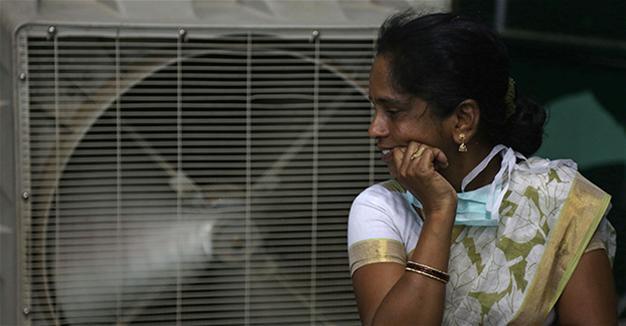2016 ‘very likely’ hottest year on record: UN
MARRAKECH, Morocco – Agence France-Presse

AP photo
The year 2016 will “very likely” be the hottest on record, the U.N. said Nov. 14, warning of calamitous consequences if the march of global warming cannot be halted.Average temperatures for the year were set to hit about 1.2 Celsius (2.16 degrees Fahrenheit) over pre-Industrial Revolution levels - meaning that 16 of the 17 hottest years on record were this century, said the U.N.’s World Meteorological Organization (WMO).
The new record means the world is already more than halfway to the upper limit of 2 C of warming overall, 1.5 C if possible, which U.N. nations had agreed upon to stave off worst-case-scenario climate change.
“Another year. Another record. The high temperatures we saw in 2015 are set to be beaten in 2016,” WMO secretary general Petteri Taalas said in a statement.
The El Nino weather phenomenon had boosted temperatures in the early months of the year, but even after its effects dissipated, the mercury stayed high.
In parts of Arctic Russia, temperatures were 6 C to 7 C higher than the long-term average, the statement said. Other Arctic and sub-Arctic regions in Russia, Alaska and northwest Canada were at least 3 C above average.
“We are used to measuring temperature records in fractions of a degree, and so this is different,” said Taalas.
The WMO report was published as U.N. climate talks entered their second week in Marrakesh - the first since last year’s huddle in the French capital concluded with the climate-rescue Paris Agreement.
The Moroccan followup is meant to agree on rules for executing the plans and goals outlined in the pact, which envisions reining in global warming by cutting back on greenhouse-gas emitting coal, oil and gas for energy.
Earlier in the day, the annual Global Carbon Budget report said carbon emissions from burning fossil fuels have been nearly flat for three years in a row - a “great help” but not enough to stave off dangerous climate change.
















